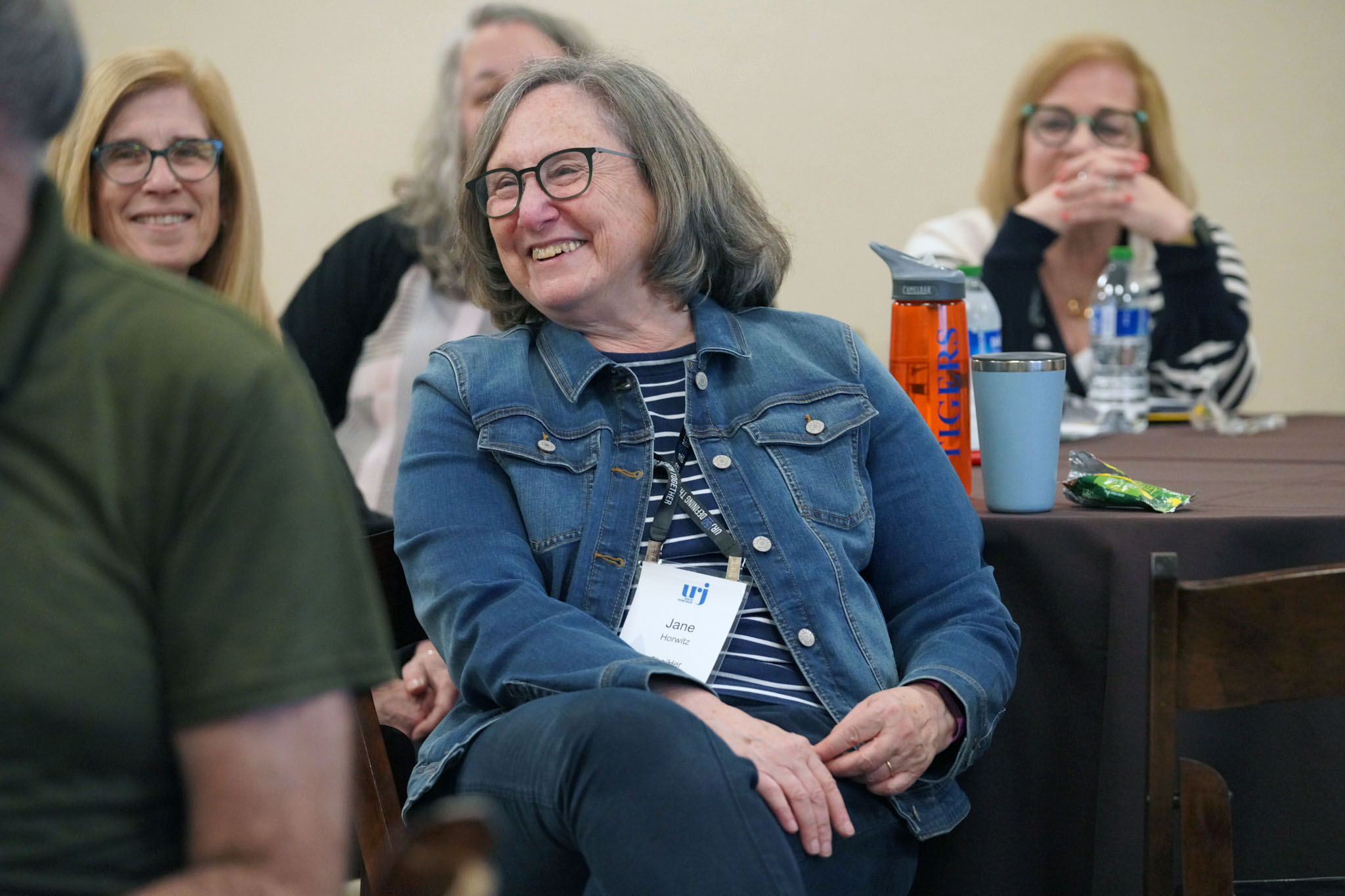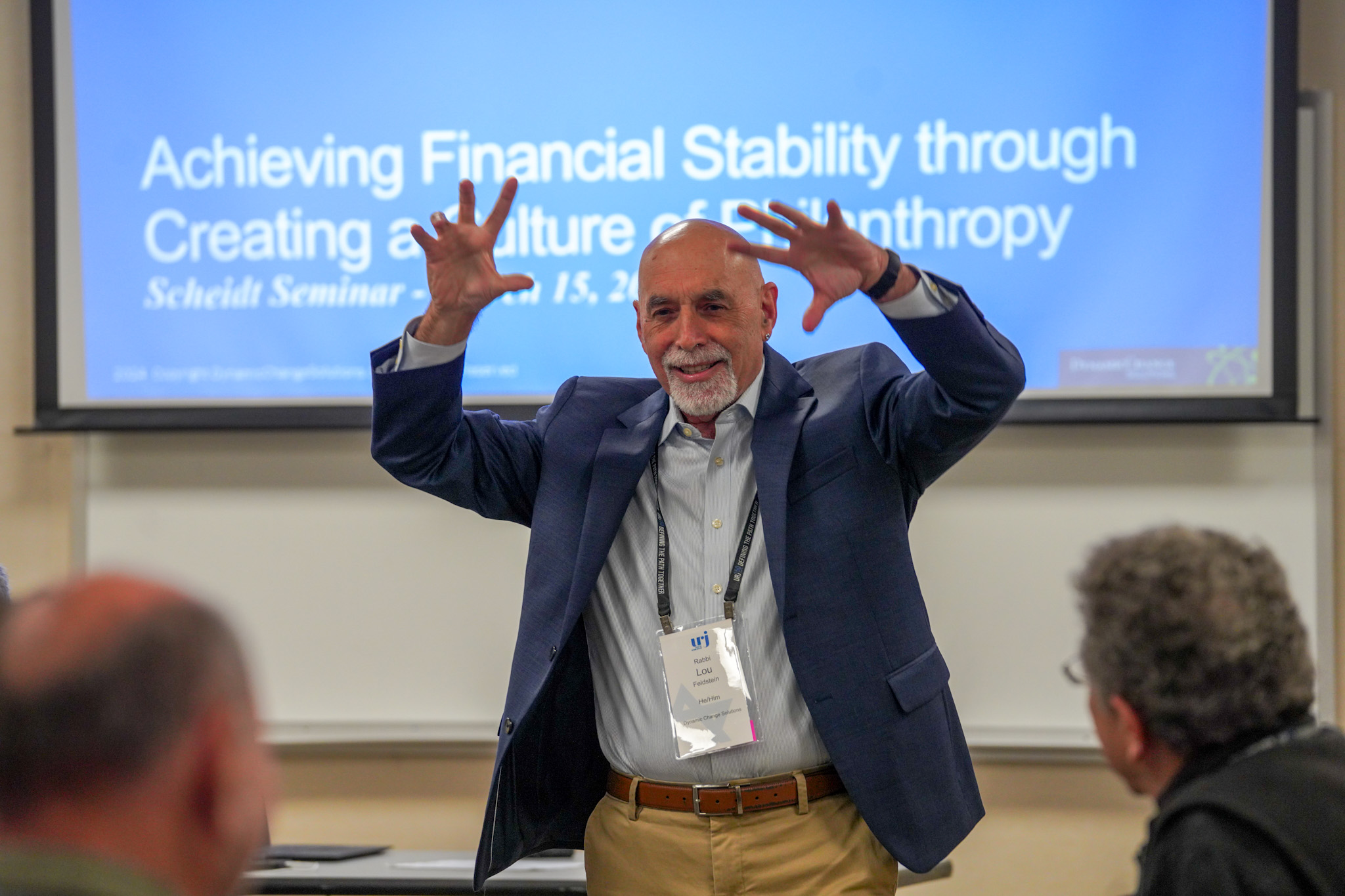

In our efforts to fortify vibrant Reform communities, the URJ invested in congregational presidents and presidents-elect through the Scheidt Seminar, which allows them to connect, learn, and hone their leadership skills.

Leading a congregation, whether from the bimah or on the board, can be intimidating. The URJ’s online Leadership Bootcamp works to meet congregational leaders where they are, providing them with tools to hone foundational leadership skills that will help them grow sustainable communities and lead our Movement into a vibrant future.
The Shallat Clergy Transition Seminar provides support for incoming clergy, congregational leadership, and the community by turning potentially challenging transitions into opportunities for growth and engagement. This seminar helps new clergy and congregational presidents cultivate sacred partnerships through the URJ’s “Rabbinic Transition Roadmap,” building a foundation of clear, professional communication with each other and other congregational leaders as they create sustainable, vibrant communities together.
The URJ’s toolkits give congregational leaders the resources they deserve to help them build stronger, more vibrant communities. These toolkits aim to help leaders conduct effective meetings, understand their roles, prepare new board members, and manage sacred partnerships. Each toolkit was hand-compiled by URJ professionals to help leaders tackle everyday challenges with practical, user-friendly solutions that will guide them as they nurture their communities.
Effective Meeting: Lead focused, purposeful meetings aligned with your congregation’s goals.
Congregational Leader Role: Clarify and strengthen your leadership in any role.
Board Membership: Prepare board members to lead with clarity and purpose.
Sacred Relationships: Build healthy, respectful leader-staff relationships.
As part of our mission to provide congregational leaders with tools for building vital Jewish communities, the URJ launched JHR, a new solution designed to help URJ-affiliated congregations with delegating HR tasks. We partnered with industry leaders High5 and Insperity to help congregations manage tasks such as payroll, administration, professional development, staff benefits, and navigating employment regulations. JHR is designed to help congregational leaders improve workplace culture, build a strong team, and expand their community’s impact.

Small congregations face unique challenges. The URJ, Central Conference of American Rabbis, and the American Conference of Cantors, in consultation with Hebrew Union College - Jewish Institute of Religion, created the Small Congregation Clergy Collaborative to ensure that all congregations, regardless of their size, can access the resources they need to create vibrant communities without putting any added strain on their budgets. Ten percent of small congregations have hired part-time rabbis and cantors through this initiative.